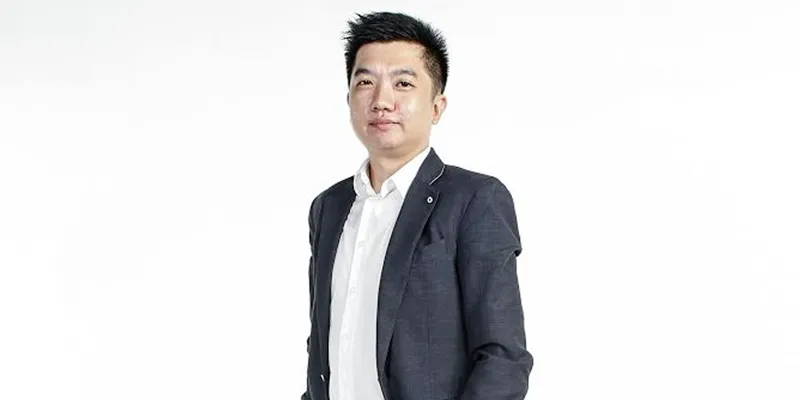[Startup roundup] How to earn big dollars Alibaba style, and Jack Ma's Love Quotient
No doubt there are tremendous learnings for the e-commerce industry from Alibaba’s Double 11 global shopping extravaganza. In 24-hours, it mopped up $25 billion in sales on November 11. But what it’s Founder Jack Ma, the English teacher-turned-self-made-billionaire, wants you to really learn from him is quite something else.

According to Jack Ma, the secret to his success is because of what he calls the 'LQ'. You may have the required IQ and EQ (both more or less established metrics to judge a leader), but what separates an individual from the rest of the world and ultimately leads to success is what Jack Ma calls LQ. It is the Love Quotient that he believes will keep humans ahead in the race when the machines and robots finally take over.
In a talk he gave at the Bloomberg Global Business Forum in New York City in September, Jack Ma had reportedly said, “If you want to be respected, you need LQ. And what is LQ? The quotient of love, which machines never have.” According to him, LQ lends humans the ability to come up with creative solutions to the world’s pressing problems like hunger, disease, and climate change.
It is no wonder then, one can never fault him on his creativity, which was in full display at the Double 11 global shopping sale on November 11, a day that marks Singles’ Day in China. A day when the young, single, and affluent Chinese probably stock up on material things in exchange for love later.
Sprinkled with the right dose of entertainment (there were songs and dance) glitz and glamour (he had Nicole Kidman flown in), technology (no tech glitches during the sale), and offering customers with an enviable range of products from all over the world, the Alibaba group made the most of the Singles’ Day.

Our correspondent Athira Nair was in Shanghai witnessing this extravaganza and filled us with interesting details over real-time Whatsapp messages. No she did not switch to WeChat. She is still recovering from the overwhelming experience and will soon file her next piece which should give an insight or two into how e-commerce startups here can run things.
If you missed her earlier reports, you can read them here, titled: ‘India is very important for Alibaba,’ says CEO Daniel Zhang, and ‘Alibaba earns $12 billion in first two hours of 11.11 sale in China’.
From Shanghai to Jakarta and Silicon Valley
It was not only China that YourStory visited. Last month, our video producer and editor Dola Samanta was in Indonesia and Malaysia to document the startup ecosystem there as part of the StartUp AsiaBerlin roadshow. She came up with this story of William Tanuwijaya, who is Indonesia’s answer to Jack Ma. William, who hails from the small town of Pematangsiantar and comes from humble beginnings, is the Founder and CEO of Tokopedia.

Writes Dola, “Growing up, Tanuwijaya had limited access to books, which drove him to build a business that would democratise commerce through technology and empower Indonesians across the 17,000-plus islands that make up the country.” Read her full story here, titled: ‘Meet Indonesia’s Jack Ma who is building an e-commerce platform minus the discounts & COD’.
We hope to bring more stories from South East Asia soon. And sooner from Silicon Valley, where YourStory Founder and CEO Shradha Sharma is visiting right now. Stay logged in for stories from there.
Back to Delhi
Back home, this week, there was much to talk about too.
The alarming pollution levels in Delhi and surrounding areas need to be dealt with on a war footing. This is the right time for startups to jump in and find lasting solutions.
We wrote about Nirvana Being this week, which is providing solutions to fight the air pollution in Delhi. Established by Jai Dhar Gupta in 2015, Nirvana Being has gained popularity among Delhiites as a specialty mask brand for its Vogmask. With its high filtering technology, it claims to be the only certified reusable and washable anti-pollution mask available in India. You can read the full story here, titled: ‘How Nirvana Being is protecting Delhi residents from alarming levels of air pollution’.

This week also marked one-year of the controversial demonetisation move by the government. Was it a good move or a move that slowed the economy down, we’ll leave that for the economists to argue. But at YourStory, we brought stories from the ground that showed the impact of one year of demonetisation on business and people. You can read them all here.
One thing, though was clear -- you can take cash away from the Indian, but you cannot take Indian away from cash. You can read my piece on why we are a long way away from being a cashless society here, titled: ‘A year after demonetisation, why is cash still king?’
Demonetisation and the fintech sector
The funding round up this week showed that the fintech sector grabbed the largest piece of the funding pie. Interestingly, following demonetisation, the fintech sector saw a sharp rise as there was demand for more digital transactions. Read Tarush Bhalla’s story on why Indian fintech failed to make the big leap in one year after cash ban. He writes, “...why is it that the Indian fintech seems to be servicing only the top 10 percent of the population. What’s stopping them to make inroads into Tier III and Tier IV geographies, and really take on a seemingly ready market for expansion?”
Let’s end this roundup on a sweet note. Here’s the story of Rajiv Seth, who started All Good Scents, a perfume brand from India. Today, All Good Scents has 24 premium quality fragrances for men and women, all made in France. The essential oils are taken from India and turned into perfumes in France. Read the full story here, titled: All Good Scents – the made-in-France Indian perfume brand’.


![[Startup roundup] How to earn big dollars Alibaba style, and Jack Ma's Love Quotient](https://images.yourstory.com/cs/wordpress/2017/11/Jack-Ma-3.png?mode=crop&crop=faces&ar=2%3A1&format=auto&w=1920&q=75)




